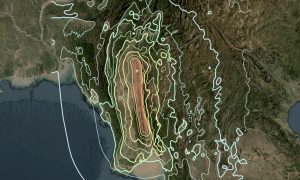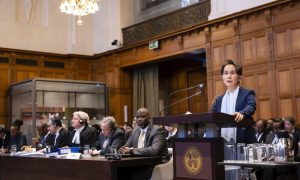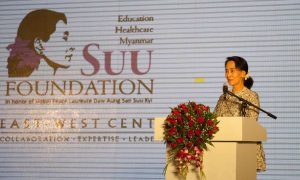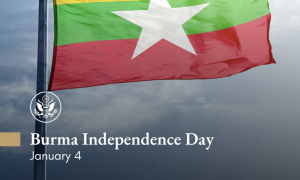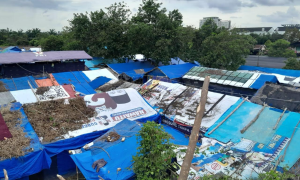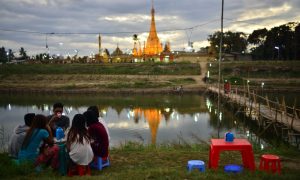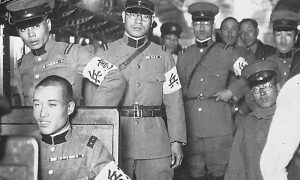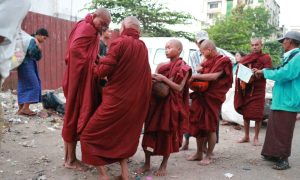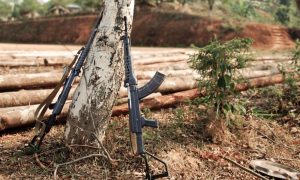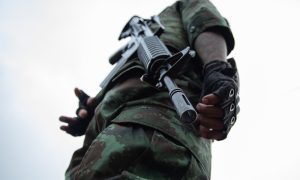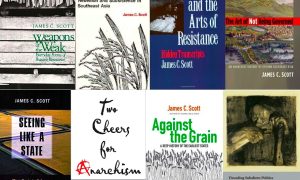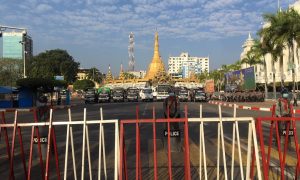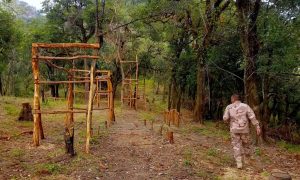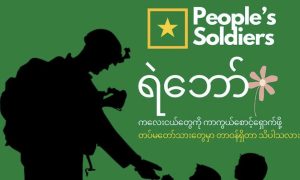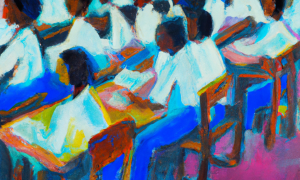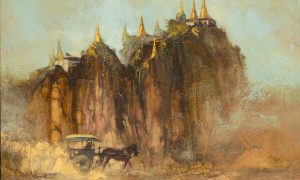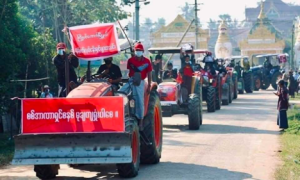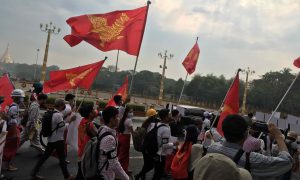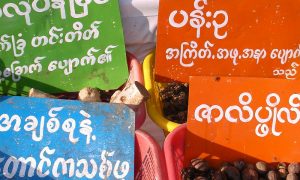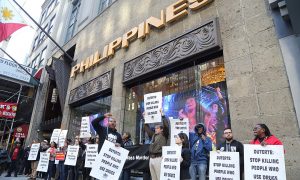We can channel grief into support for post-quake relief in Myanmar
Rohingya genocide warrants and the legitimacy battle in Myanmar
Defending Aung San Suu Kyi’s reputation becomes a faultline within the resistance
Name-calling in Myanmar: on people
Names, titles and honorifics can be a political landmine for scholars
Will Pekanbaru become Indonesia’s Cox’s Bazar?
The treatment of refugees in Indonesia sees a serious setback
Ethnic solidarities in Myanmar: coalitions or movement?
Revolution has opened new opportunities to transcend entrenched racial and class dynamics
Myanmar’s MI and the Kempeitai: a historical footnote
The Japanese influence on Ne Win’s military intelligence force has been exaggerated
Buddhist division and polarisation in Myanmar’s revolutionary situation
Widespread co-optation by the junta sits alongside significant monastic resistance
Ethnonationalism and Myanmar’s future
Framing the war in Myanmar as a ‘fight for democracy’ obscures the crisis of the nation-state at the conflict’s heart
Revolution and solidarity in Myanmar
On the end of the “transition paradigm” and the meanings of the present revolution
James C. Scott: against the myopic study of politics
“To become good and dynamic, political science must be broadened and cooperate with, among others, anthropologists, sociologists, and historians”
In Myanmar, prison protests are revolutionary
“The prisoner’s body is a political, but perishable, weapon.”
Amid revolution, Myanmar’s NGOs face a deficit of donor solidarity
Relationships need to move beyond oversight to solidarity
Forgotten war in Burma, ignored war in Myanmar
International media outlets’ clichéd descriptions of the ongoing conflict are at best self-incriminating
Defection and revolution in Myanmar
For the first time, a resistance movement against military rule is welcoming and aiding soldiers who choose to join the ‘people’s side’
Matriculating amid Myanmar’s conflict
Education has become a battleground in the struggle against the junta, with students, communities and Myanmar’s economic future worse off for it
Myanmar and the second-oldest profession
The long history of intelligence operations under the Burmese kings attests to the fact that Myanmar has long been an intelligence state.
Memories of Burma’s art scene in the 1970s
Andrew Selth recalls an era of flourishing artistic expression amid heavy-handed censorship.
Farmers, Facebook and Myanmar’s coup
New analysis shows how a surge of online resistance in the countryside faded amid fear and self-censorship.
Image-making as necessity in Fighting Fear II
A recent exhibition showcased Myanmar artists' responses to the coup and resistance to it.
Common enemy: a hollow slogan for solidarity in Myanmar
...how to divide power between the NUG and the ethnic states, and protect sub-minorities within minority states?
Myanmar studies academics decry SOAS Professor of Burmese Language post closure
Losing the position will end an important legacy of language scholarship and close opportunities for scholars interested in broader Burma/Myanmar studies.
Civil society in the Mekong: What can we learn from environmental struggles?
As political space contracts, the role for informal networks or coalitions expands.
“Mandatory” deaths for the poor, get out of jail free card for the rich in Asia
The fact that dirty money needs to be cleaned provides opportunities for law enforcement agencies in ASEAN to collectively monitor drug lords and drug traffickers.
 Facebook
Facebook  Twitter
Twitter  Soundcloud
Soundcloud  Youtube
Youtube  Rss
Rss 
